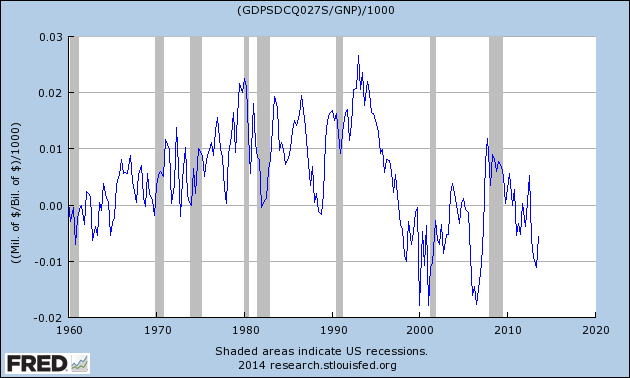February 03, 2014
The NYT had a piece noting how states across the country are seeing better budget pictures than they had projected. While this is attributed to growth, economic growth in 2013 was pretty much in line with expectations (worse in first half, better in second). The more plausible explanation is that the run-up in the stock market to both more capital gains taxes (a point that is noted) and also for capital gains income in many cases to be reported and taxed as normal income.
For tax purposes, short-term capital gains (assets held less than a year) are treated the same as normal income. Therefore it is likely that many households just report capital gains earnings as normal income. This would explain why the statistical discrepancy turns negative following large run-ups in asset prices such as the stock bubble in the 1990s and the housing bubble in the last decade.

The implication of this scenario is that much of the increase in the tax revenue that states are now seeing is ephemeral. Unless stock and/or house prices continue to rise at an extraordinary pace, the statistical discrepancy will fall back toward zero and the extra tax revenue states are now seeing will disappear.







Comments